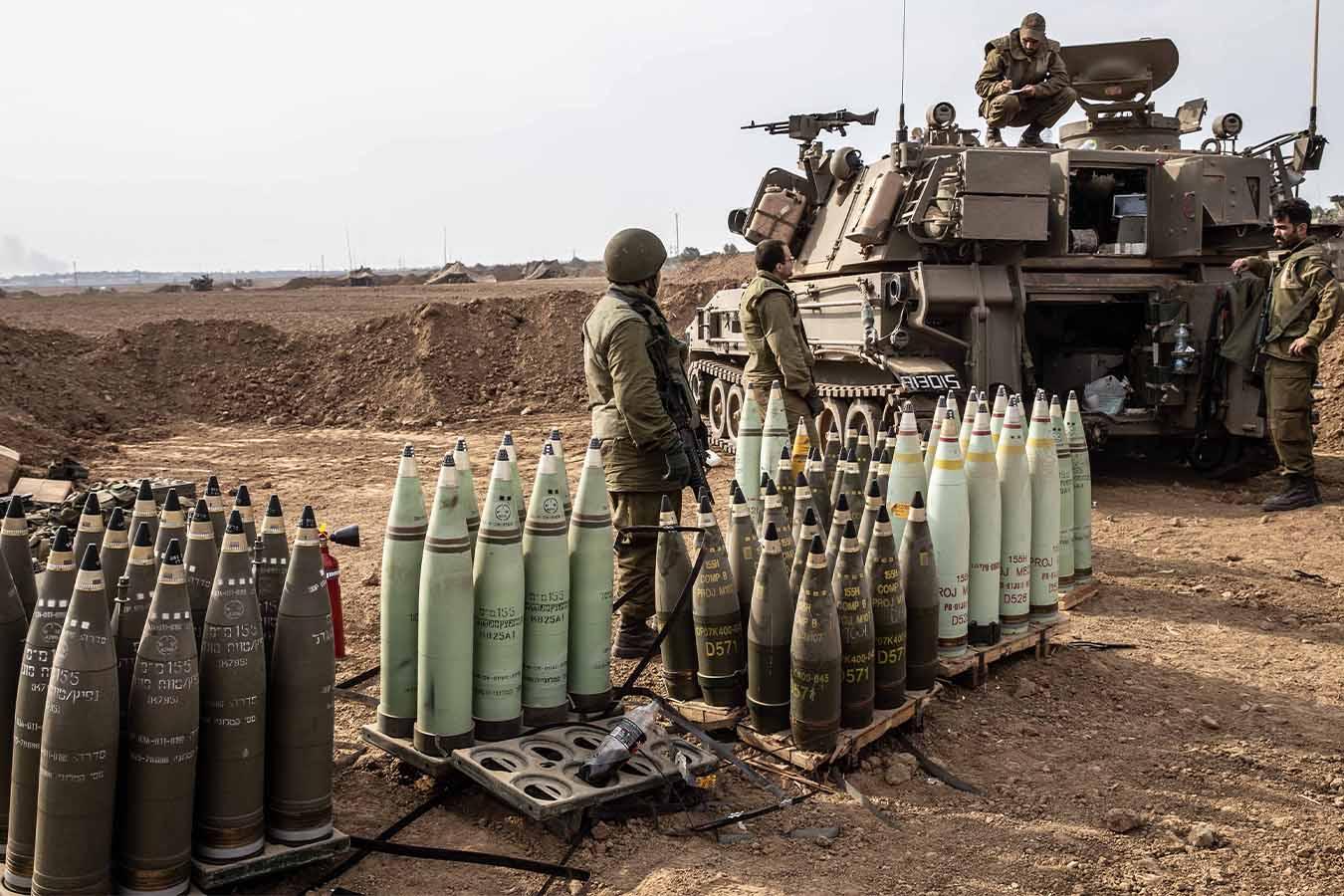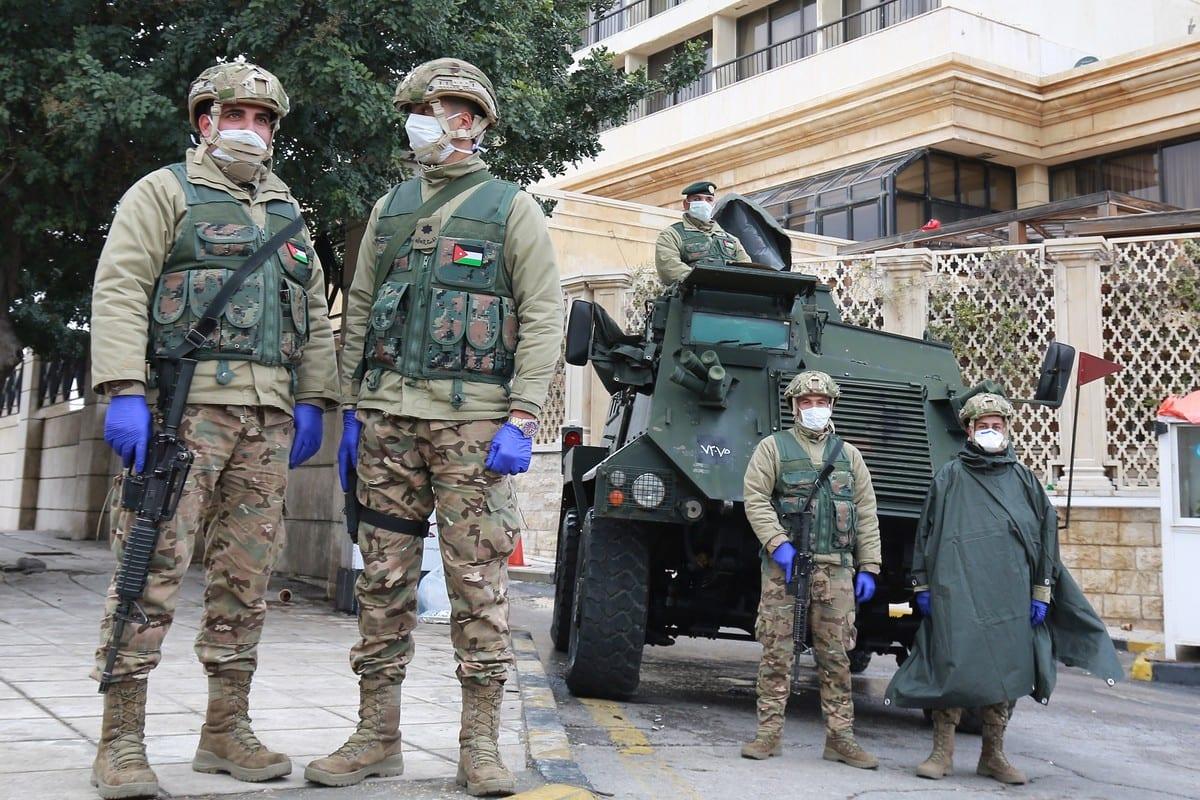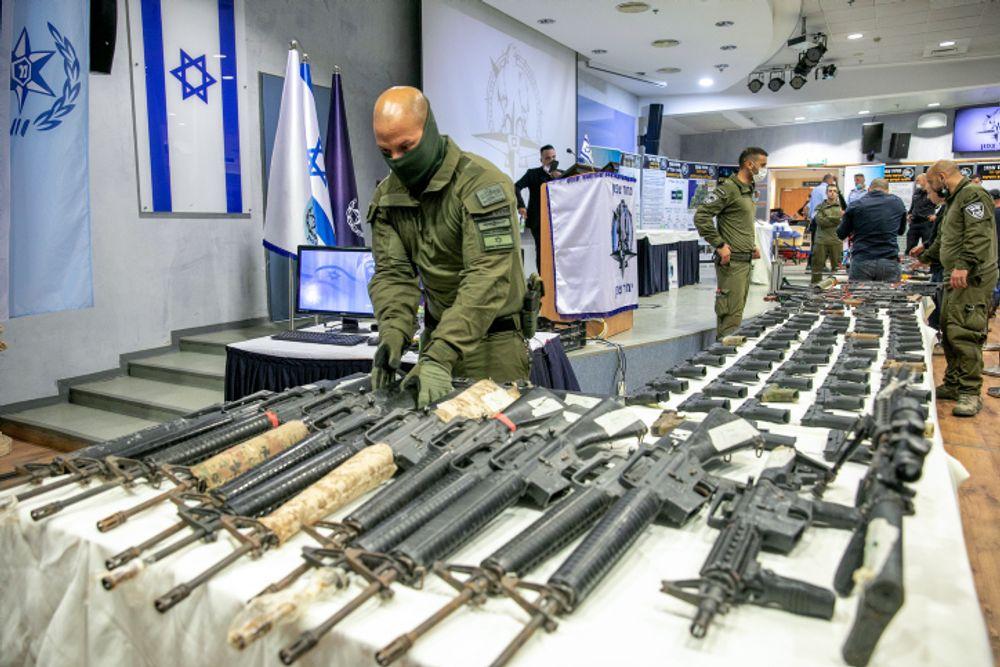War in Gaza fuels arms and drug smuggling in Middle East Combatting syndicate
As the Israel–Hamas war in the Gaza Strip risks escalating to a larger regional war, particularly after the assassination of Hamas leader Ismail Haniyeh in Tehran, another major threat, arms, and drug trafficking threatens the fragile stability in the region. On May 23, 2024, while patrolling the Arabian Sea, the British Royal Navy destroyer HMS Diamond intercepted an unflagged fishing vessel smuggling 2,382 kilograms of hashish. The seizure was the ninth interdiction of narcotic substances this year by the Combined Maritime Forces, a naval coalition of 44 countries.
In addition to illegal drug trafficking, the eruption of the Gaza war paved the way for certain groups to freely transfer arms and ammunition across the region, leading to a devastating loss of life in conflict zones. For example, Amnesty International documented the use of US-manufactured weapons in several unlawful airstrikes, including US-made Joint Direct Attack Munitions (JDAM) in two deadly, unlawful air strikes on homes in the occupied Gaza Strip. The mentioned weaponry export and use in the conflict zone is highly controversial, even though the mounting number of civilian casualties did not prevent their re-export and re-use many times.

In August, the US approved another $20 billion in weapons transfers to Israel, despite concerns that Israeli forces are routinely violating international law in Gaza and the occupied West Bank. In total, the value of US exports to Israel reached $13 billion last year, up from $12.5 billion in 2022.
Moreover, the geographical proximity of Gaza to Syria, Yemen, and Iraq, other conflict-plagued failed states opens more horizons for criminal groups and smugglers to use uncontrolled conflict zones to traffic weapons. In this context, Iran stands out as the leading regional country with frequent attempts to supply the Yemen-based Houthi rebels with short-range rockets, rifles, and other equipment. In January, the US CENTCOM forces seized two dhows carrying arms and other lethal and dual-use items bound for the Houthis in violation of UN Security Council Resolution 2216. The haul included ballistic missile assemblies, items to manufacture underwater and surface drones, military-grade communications equipment, and anti-tank guided missile launchers.

As such, on August 5, Jordanian security forces blocked a new attempt to smuggle drugs into the country from Syria. Indeed, various criminal syndicates actively exploit the current security gap in the region emanating from the Gaza war to bolster illegal activities. Notwithstanding the security risks and turnover of drug traffic, illicit traffic of arms and arms supply of the warring parties remain seriously tough issues. Despite international criticism and pressure, foreign companies and governments keep sending more armour and equipment to the war-torn region.
Hence, according to recent sources, Barclays, a well-known British bank, has increased its investments in companies involved in supplying arms and military technology to Israel, thus ramping up its investments despite pressure to divest from holdings linked to the Israeli arms trade. Consequently, the figures amounted to a 55 per cent increase in shareholdings since 2022 and a 54.5% increase in loans and underwritings since the same year.

Unlike Western countries and partners, certain Arab states having diplomatic relations with Israel significantly downgraded their military partnership with Israel as a part of the condemnation campaign. For example, the United Arab Emirates, Bahrain, and Morocco decreased arms purchases from Israel, which accounted for only 3% of the total, down from 24% in 2022. However, it remains unclear whether these countries are moving towards slowly cutting off their military cooperation with Israel, considering the current data. Nonetheless, those countries are unlikely to have severe diplomatic ties with Israel due to their efforts to negotiate with Tel Aviv the ceasefire with Hamas and humanitarian aid.
The power vacuum and security gap in the Middle East caused by the brutal war turned the Arabian Peninsula into a lucrative destination for arms and drug smugglers. The growing trend and turnover of Captagon trade continues unabated, leading to more frequent outbursts of armed violence in the Syria-Jordan border, Yemen, and the Gaza Strip.








